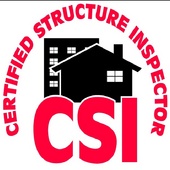What it takes:
Nevada requires Inspectors to be licensed or "Certified". Nevada requires a minimum of 40 hours of classroom education and 25 inspections with another Inspector. You must be able to prove you can write a creditable report and take a 100 question test with 75 correct as passing. The Inspector has to submit finger prints, pass a background check, and not have back child support. Inspectors must have $100,000 in E&O and $100,000 in liability Insurance. Inspectors need 20 hours of continuing education every 2 years.
Once all these are meet the Real Estate Division issues the Inspector of Structures Certificate. Once you have this you're a "Certified Inspector". Only Certified Inspectors can engage in the business of, act in the capacity of, or advertise or assume to act as an inspector.
What an Inspector Can and Can't do:
Nevada requires the inspector to visually observe the interior components, built in Kitchen appliances, insulation and ventilation system, plumbing systems, electrical systems, heating systems, air conditioning systems, exterior components, roofing components, structural systems, and site of structure and provide an Inspection report. If the inspection doesn't include these areas it must state why in the report or state in the report if it's a partial or reinspection.
Nevada does not require a certified inspector to inspect or enter any areas that are not "Readily accessible". They don't move or disturb any item, including, without limitation, insulation, personal items, panels, furniture, equipment, plants, soil, snow, ice or other debris, that obstructs his access to or visibility of any item.
Inspectors are required to follow the Nevada Standards of Practice (SOP). These are the guidelines set for how the Inspector acts and how the Inspection is to be performed by the state. Many Home Inspector Associations have their own SOP's but the Nevada ones take priority. Inspector are to provide an observation of the property and its mechanicals and report on the findings.
A certified inspector shall:
1. Perform his duties with the highest standard of integrity, professionalism and fidelity to the public and the client, with fairness and impartiality to all.
2. Avoid association with any person or enterprise of questionable character or any endeavor that creates an apparent conflict of interest.
3. Conduct his business in a manner that will assure his client of the inspector's independence from outside influence and interest which would compromise his ability to render a fair and impartial inspection.
4. Not disclose any information concerning the results of an inspection without the approval of the client or his representative for whom the inspection was performed.
5. Not accept compensation, financial or otherwise, from more than one interested party for the same service on the same property without the consent of all interested parties.
6. Not, whether directly or indirectly, accept a benefit from, or offer a benefit to, a person who is dealing with the client in connection with work for which the inspector is responsible. As used in this subsection, "benefit" includes, without limitation, a commission, fee, allowance, or promise or expectation of a referral for other work.
7. Not express the estimated market value of an inspected property while conducting an inspection.
8. Not use the term or designation "state certified inspector" unless he is certified.
9. Before the execution of a contract to perform an inspection, disclose to the client any interest of the inspector in a business that may affect an interest of the client.
10. Not allow his interest in any business to affect the quality or results of an inspection.
A certified inspector shall not, while making an inspection:
1. Offer to perform or perform any act or service that is unlawful.
2. Offer warranties or guaranties of any kind.
3. Offer to perform or perform any job function for which he does not have a license, including, but not limited to, the services of an engineer, architect, plumber or electrician.
4. Calculate the strength, adequacy or efficiency of any system or component.
5. Enter any area or perform any procedure that may damage any part of the structure being inspected or endanger any person, including, but not limited to, the certified inspector.
6. Operate any system or component that is shut down or otherwise inoperable.
7. Operate any system or component that does not respond to normal operating controls.
8. Determine the presence or absence of any suspected adverse environmental condition or hazardous substance, including, but not limited to, toxins, molds and other fungi, carcinogens, radon, noise or contaminants, unless he is licensed or certified to make such inspections and determinations.
9. Determine the effectiveness of any system installed to control or remove suspected hazardous substances.
10. Predict the future condition of any system or component, including, but not limited to, the failure of a component.
11. Project the operating costs of any component.
12. Repair a defect identified during the inspection.
These are Nevada Laws and are to be followed like any other laws. Be cautious about Inspectors that don't follow these rules or claim to exceed them. While it may look like an extra service to you or your client it will be the first thing brought out in court if there is an issue. The inspector will likely be the one who takes the hit but all parties involved still have to pay to defend themselves.
This is just the high points to find the full requirements you can find all the information on the Nevada RED website: http://red.state.nv.us/statsandregs.htm


Comments(0)